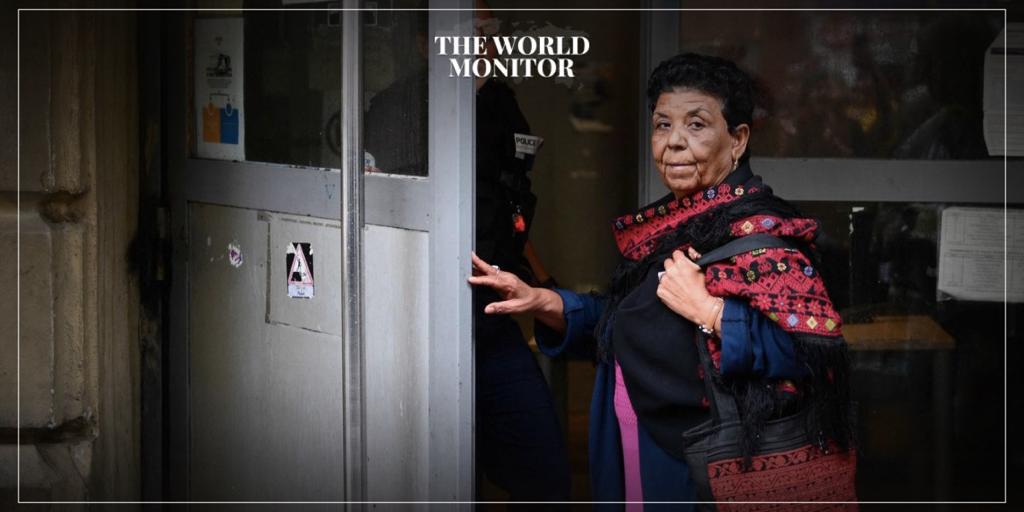Mariam Abu Daqqa, a prominent Palestinian activist, recently left France for Cairo on a Friday evening, following the French Council of State’s approval of her deportation. This decision marks a significant turn in France’s approach to foreign activists and has sparked a wide range of reactions.
The Council of State, France’s highest administrative court, greenlighted the deportation of Abu Daqqa, associated with the Popular Front for the Liberation of Palestine (PFLP) – an organization labeled as ‘terrorist’ by Israel and the European Union. This ruling cemented the French Interior Ministry’s earlier assessment that Abu Daqqa’s presence in France, since the Hamas attack in Israel on October 7, posed a threat to public order.
Abu Daqqa, 72, had received a 50-day visa in early August for a visit to France, aimed at participating in conferences about the Israeli-Palestinian conflict. She arrived in France in September and managed to hold two conferences despite campaigns to ban her public activities. Notably, Abu Daqqa also advocated for the release of George Ibrahim Abdullah, a Lebanese activist with the PFLP, sentenced to life imprisonment in 1987 for involvement in the assassination of American and Israeli diplomats.
Her case has attracted attention for its implications on the freedom of speech and political activism. In a phone call with the French Press Agency (AFP), Abu Daqqa, while being detained in an administrative detention center near Paris’ Charles de Gaulle Airport, criticized the trial process, calling it “unbefitting a democratic government” and an “assault on Palestine’s right to statehood and identity.”
Her lawyers, Elsa Marsil and Marie David, conveyed to AFP their plans to appeal the decision and potentially take the case to the European Court of Human Rights if necessary. They view this deportation as a criminalization of support for Palestine.
This event has triggered a debate over France’s stance on international activism and the balance between national security and freedom of expression. The deportation of Abu Daqqa is seen by some as a political statement, reflecting the complex and often contentious nature of the Israeli-Palestinian conflict and its global implications. The case has also raised questions about the rights of foreign activists in France and the criteria used to judge their presence as a threat to public order.
As Mariam Abu Daqqa departs France under these contentious circumstances, her case stands as a testament to the ongoing struggles faced by activists and the delicate balance nations must strike in addressing international political issues.






